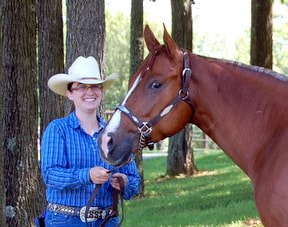Common Variable Immunodeficiency in Horses, ACVIM 2009
Common variable immunodeficiency is a rare, but serious disease in adult horses that often leads to hospitalization, said Maria Julia Bevilaqua Felippe Flaminio, DVM, MS, PhD, Dipl. ACVIM, who presented research on the topic at the American College of Veterinary Internal Medicine Forum, held June 3-6 in Montréal, Quebec.
Common variable immunodeficiency (CVID) is a humoral (in the
- Topics: Article
Common variable immunodeficiency is a rare, but serious disease in adult horses that often leads to hospitalization, said Maria Julia Bevilaqua Felippe Flaminio, DVM, MS, PhD, Dipl. ACVIM, who presented research on the topic at the American College of Veterinary Internal Medicine Forum, held June 3-6 in Montréal, Quebec.
Common variable immunodeficiency (CVID) is a humoral (in the blood) immunodeficiency in the horse in which B cells (cells that produce antibodies) either fail to develop or differentiate into antibody secreting plasma cells.
This condition is characterized by late-onset B cell lymphopenia or depletion, hypo- or agammaglobulinemia (a disorder in which there are very low levels of immunoglobulins), inappropriate response to tetanus toxoid vaccination, recurrent fevers, and bacterial infections. Pneumonia is the most common complaint, and bacteremia and suppurative meningitis are also frequent. Other clinical manifestations include sinusitis, peritonitis, diarrhea, gingivitis, skin abscesses, and hepatitis.
According to Flaminio, humoral deficiency is the most commonly diagnosed primary immunodeficiency in mammals, including the horse. CVID has been diagnosed in horses between 2 and 19 years of life, with no gender, breed, or familial predilection
Create a free account with TheHorse.com to view this content.
TheHorse.com is home to thousands of free articles about horse health care. In order to access some of our exclusive free content, you must be signed into TheHorse.com.
Start your free account today!
Already have an account?
and continue reading.

Written by:
Jennifer Whittle
Related Articles
Stay on top of the most recent Horse Health news with












